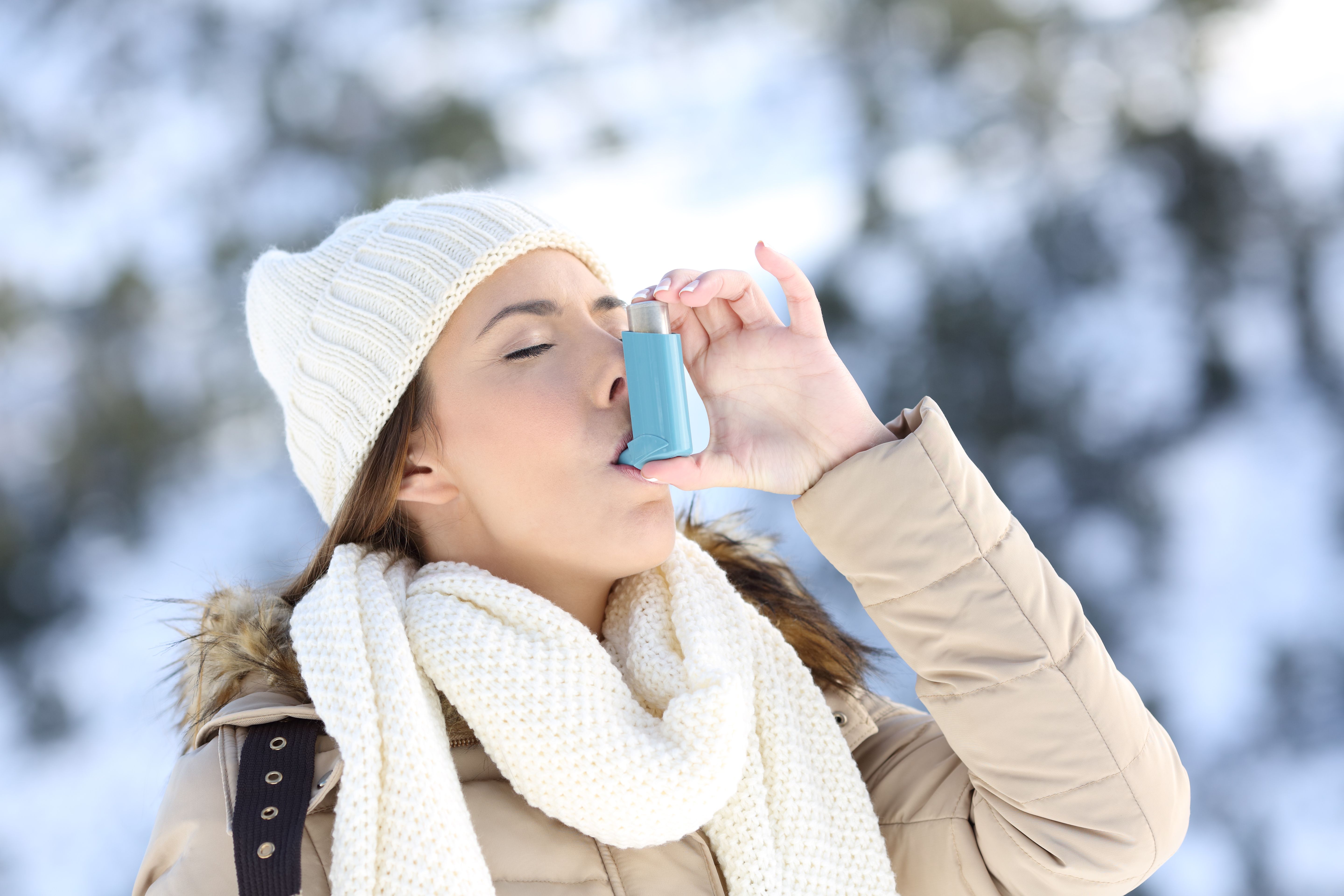- Center on Health Equity & Access
- Clinical
- Health Care Cost
- Health Care Delivery
- Insurance
- Policy
- Technology
- Value-Based Care
How Cold Weather Worsens Chronic Conditions and What Patients Can Do
Strategies to help patients with chronic conditions stay healthy and avoid complications this winter.
As temperatures drop, winter can become a challenging season for individuals with chronic health conditions.
The cold, dry air, reduced sunlight, and increased risks of respiratory infections combine to exacerbate symptoms for millions of Americans with conditions ranging from arthritis to asthma. Understanding how winter impacts these health issues and taking proactive steps to mitigate symptoms can help patients better navigate the season.
Arthritis and Chronic Pain
For individuals with arthritis or chronic pain conditions, colder weather often brings increased discomfort.1 Reduced temperatures can lead to joint stiffness as muscles and tendons tighten, and changes in barometric pressure may worsen swelling and inflammation. Individuals with conditions like osteoarthritis and fibromyalgia frequently report more severe symptoms in winter.2
To manage these challenges, staying physically active is key. Low-impact exercises, such as swimming or yoga, can help maintain joint mobility and reduce stiffness. It’s important to check with a health care professional about what exercises are best to make sure your arthritis is not aggravated by overexertion.
Individuals can also dress warmly, layer clothing to retain heat, and use heating pads or warm baths to soothe sore areas—a tip that stretches beyond managing chronic conditions in the winter. Beyond over-the-counter or prescription anti-inflammatory medications, experts say vitamin D can also help maintain proper body function while alleviating pain and stiffness. Patients can increase their vitamin D levels by incorporating fatty fish and seafood into meals, using a UV light, or taking a supplement.
Cardiovascular Disease
Cold weather can be dangerous for people with cardiovascular conditions, as it forces blood vessels to constrict, increasing blood pressure and the workload on the heart.3 This heightened strain can increase the risk of heart attacks and strokes, particularly during physically demanding activities like shoveling snow. Cold temperatures may also exacerbate symptoms of heart failure and peripheral artery disease.
Patients should avoid sudden, strenuous outdoor activities in freezing temperatures, especially if they have existing heart conditions. Regularly monitoring blood pressure and adhering to prescribed medications are critical for staying safe during winter months.
Patients with asthma should use their inhaler as directed to prevent flare-ups in the winter. | Image credit: Antonioguillem – stock.adobe.com

Respiratory Conditions
People with respiratory conditions like asthma, chronic obstructive pulmonary disease (COPD), and bronchitis are especially vulnerable to cold, dry air and seasonal respiratory infections.1 Breathing in cold air can irritate airways, trigger bronchospasms, and worsen symptoms like coughing, wheezing, and shortness of breath. Indoor heating can further dry out the air, increasing discomfort for those with sensitive respiratory systems.
Patients with asthma or other respiratory or pulmonary conditions should wear a scarf or mask over their nose and mouth when going outside to warm and humidify the air they breathe.4 Using a humidifier indoors can help maintain air moisture, and staying up-to-date on vaccinations for flu, pneumonia, and COVID-19 is crucial. Prescribed inhalers or nebulizers should be also used as directed to prevent flare-ups.
Mental Health
Seasonal affective disorder (SAD), a type of depression tied to seasonal changes, often emerges during the winter months when shorter days and limited sunlight take a toll on mental health.5 Common symptoms include persistent sadness, fatigue, oversleeping, and carbohydrate cravings. Research indicates that disruptions in serotonin and melatonin levels—compounded by vitamin D deficiency—contribute to the development of SAD, particularly in winter-pattern cases.
To combat SAD, patients can explore treatments such as light therapy, which involves exposure to a bright light box to mimic natural sunlight, or cognitive behavioral therapy tailored to SAD to address negative thoughts linked to seasonal changes. Antidepressants, including selective serotonin reuptake inhibitors, may help regulate mood, and vitamin D supplementation can help address deficiencies. These strategies, along with engaging in enjoyable activities and staying socially connected, offer actionable steps to manage SAD and improve quality of life during the colder months.
Chronic Skin Conditions
The dry, cold air of winter often aggravates conditions like eczema and psoriasis, leaving skin itchy, cracked, and irritated.6 For those already prone to these conditions, the combination of lower humidity outdoors and indoor heating systems can exacerbate symptoms.
Patients are advised to use thick, fragrance-free moisturizers regularly, particularly after bathing.1 Limiting hot showers and using gentle soaps can also help preserve the skin's natural moisture barrier. In addition to helping patients with respiratory conditions like asthma, installing a humidifier in the home may also provide relief to those with dry skin by adding moisture to the air. Persistent symptoms may require a visit to a dermatologist for prescription treatments.
References
- Perrin J. 5 conditions that cold weather makes worse and how to cope. AARP. December 4, 2024. Accessed December 9, 2024. https://www.aarp.org/health/conditions-treatments/info-2024/health-conditions-that-worsen-in-cold-weather.html
- How colder weather affects chronic pain. Spine Diagnostic & Pain Treatment Center. February 8, 2024. Accessed December 9, 2024. https://spinediagnostic.com/how-colder-weather-affects-chronic-pain/
- Your heart in winter: tips to manage heart health in the cold. Northwestern Medicine. November 2022. Accessed December 9, 2024. https://www.nm.org/healthbeat/healthy-tips/Your-Heart-in-Winter
- Mumm EM. Why asthma is worse in winter. Temple Health. February 24, 2021. Accessed December 9, 2024. https://www.templehealth.org/about/blog/why-asthma-worse-in-winter
- Steinzor P. What you need to know about seasonal affective disorder. AJMC®. December 4, 2024. Accessed December 9, 2024. https://www.ajmc.com/view/what-you-need-to-know-about-seasonal-affective-disorder
- Health conditions that worsen in cold weather. Northwestern Medicine. Updated September 2022. Accessed December 9, 2024. https://www.nm.org/healthbeat/healthy-tips/health-conditions-that-worsen-in-cold-weather
